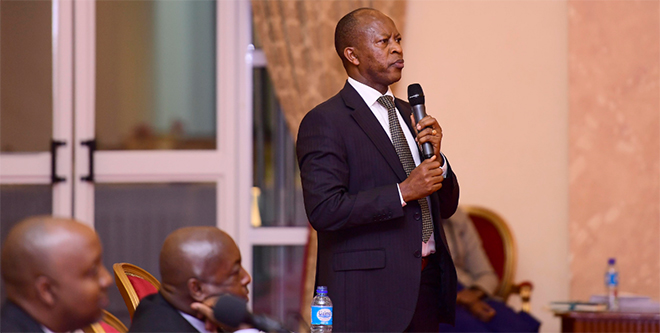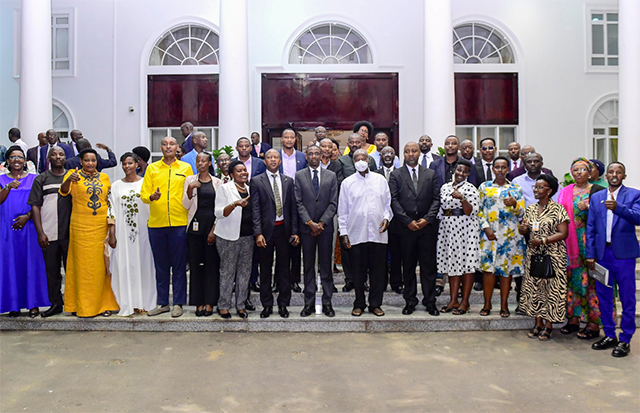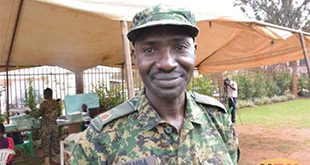
Museveni Issues Executive Order Directing Internal Affairs to Stop Denying Banyarwanda Passports
Entebbe, Uganda | THE INDEPENDENT | President Yoweri Museveni has issued an executive order instructing the Ministry of Internal Affairs to stop denying Ugandan passports to rightful citizens.
Museveni in the order signed on January 23 said that he had consistently received complaints regarding how people applying for passports are sometimes treated by the concerned authorities. “This mainly relates to how the question of whether or not an applicant is a citizen of Uganda is approached when he or she has applied for a passport,”.
The president said that the issue is not the law or any gaps in it but how the law is administered about proof of citizenship by applicants for passports or other documents of identity.
Going forward, the President directed that the Directorate of Citizenship and Immigration Control should not confiscate or cancel National Identity Cards issued by NIRA without following due process prescribed by law.
Although the order does not explicitly mention a specific group, it follows allegations that members of the Banyarwanda community have been unfairly denied passports and National Identity Cards despite being recognized as rightful citizens under Uganda’s 1995 Constitution.
Social commentator Frank Gashumba has been vocal about these grievances, alleging that many members of the Banyarwanda community have faced repeated denial of passports or had their documents confiscated by the Ministry of Internal Affairs. In 2021, a group of Banyarwanda led by Gashumba rebranded themselves as “Abavandimwe,” a term aimed at distancing themselves from perceptions of being Rwandan nationals. This move, they argued, was necessitated by widespread discrimination stemming from their association with Rwanda.
Often, this group has accused officials of Ministry of internal affairs of subjecting them to humiliating treatment under tough interrogation when they mention they are Banyarwanda by tribe.
They accuse the Directorate of Citizenship and Immigration Control officials of treating them as foreigners from Rwanda unless they prove themselves otherwise. Among the many documents they are asked to provide to prove their belonging to Uganda include land titles, letters from local leaders, and ancestral records dating back to 1926.
Gashumba contends that while due diligence is understandable, the process unfairly targets the Banyarwanda, as no other tribe is subjected to similar scrutiny.

Museveni in his new order directed that the requirements for the acquisition of passports or other identification documents must apply to all applicants equally, regardless of tribe, ethnicity or community. Gashumba claims that even when they provide all necessary documents, many Banyarwanda applicants are rather advised by immigration officials to apply for citizenship through naturalization—a process he says is unnecessary for those who are citizens by birth.
Now, in his executive order, Museveni said that if the applicant’s application is supported by a letter from the local authorities (and corroboration by notable elders, where necessary), the applicant should be promptly issued with a national identification card or passport. “The local authorities, in this case, are the chairperson local council 1, the chairperson local council III, the Gombolola Internal Security Officer and the Resident District Commissioner,” reads part of the executive order.
In an earlier interview, Ministry of Internal Affairs spokesperson Simon Peter Mundeyi defended the scrutiny of Banyarwanda applicants, citing concerns that some Rwandan nationals exploit their shared ethnic identity to obtain Ugandan documents. This, Mundeyi argued, necessitated stringent vetting to distinguish genuine Ugandan citizens from impersonators.
But, in the new executive, Museveni’s order asserts that investigating citizenship by birth is beyond the mandate of immigration, and therefore should work under their mandate.
“It is not the mandate of the Directorate of Citizenship and Immigration Control to investigate citizenship by birth and should there be a question about the veracity of the information provided by an applicant for a passport, who has indicated that they are a citizen by birth, DCIC should refer the matter to NIRA by the process prescribed under the Registration of Persons Act,” reads part of the executive order.
However, Museveni’s order has been rejected by some in the Banyarwanda community. Fred Mukasa Mbidde, the Deputy President of the Democratic Party and former member of the East African Legislative Assembly said the order presents Kinyarwanda speakers as non-citizens.
“The order presents Kinyarwanda speakers except those from Mpororo, Kisoro, and Ntungamo as non-Ugandans who should apply for naturalization as non-citizens. It risks making over 6 million persons born in Uganda, stateless, and violates international and subregional human rights instruments,” Mbidde wrote on his X page. He added that they will be challenging their treatment in the East African Court of Justice. “We call for a fresh and urgent dialogue with the President for a fair solution,” he added.
The issue of Banyarwanda citizenship has been contentious throughout Uganda’s post-colonial history. However, it gained more steam when in 1986, Banyarwanda refugees living in Uganda helped the National Resistance Movement/Army gain power.
In the 1995 constitution, the Banyarwanda were listed as among the indigenous tribes of Uganda. However, even with this enshrinement, questions about their citizenship have lingered on.
***
URN
 The Independent Uganda: You get the Truth we Pay the Price
The Independent Uganda: You get the Truth we Pay the Price


